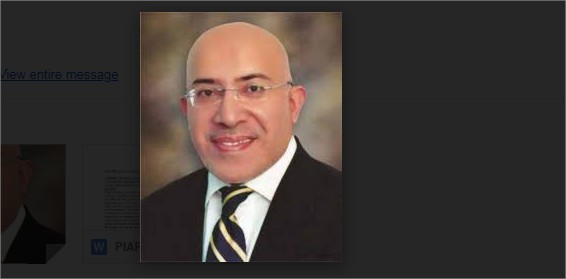DNA
LAHORE: AUG 19 – The Pakistan Industrial and Traders Associations Front (PIAF) chairman Mian Nauman Kabir has welcomed the agreement between the government and the independent power producers to bring down cost of electricity generation, as the cost of doing business continues to increase manifold.
PIAF chairman, in a joint statement with senior vice chairman Nasir Hameed and vice chairman Javed Siddiqi, congratulated the government as well as the IPPs, to reach a deal in the larger national interest under the 1994 and 2002 power policy, agreeing voluntarily to provide concessions, leading to reduce cost of power generation and cut circular debt. He termed revision of IPPs agreements as a good move despite the fact that some sensitive points were not touched by the negotiating committee and the grace marks were given to the power producers. The federal government, through its new agreement with IPPs, was working towards reducing the cost of electricity in the country,” he said and added that reforms pertaining to the power sector should also be introduced at the earliest.
Mian Nauman Kabir expressed the hope the government’s new agreement will promote industries and help reduce the burden of circular debt.
He further said that the new pact will help provide cheaper electricity to the end consumers, agriculture sector and small businesses which will help these sectors lower their production costs.
PIAF Chairman proposed that the next target should be reforms in the power distribution system to further bring down cost of production, which is very high on account of soaring energy tariffs, expansive fuel and constant rupee depreciation along with rising import duties on inputs, making the local production uncompetitive. He called for taking more concrete steps to attract foreign investment, saving the livelihood of millions of workers associated with various sectors.
Mian Nauman Kabir observed that the government will have to make visible reduction in taxes to help revive the businesses in post-corona economic strategy. He said that like the domestic industry Covid-19 crisis has also forced the global investors to put their new investment plans on hold.
PIAF senior vice chairman Nasir Hameed said that there is no visible improvement in employment even after the business activities were allowed and countrywide lockdown eased. The small and medium industries —the main providers of jobs are still struggling because of lack of funds and demand.
Nasir Hameed He said that the global lockdown imposed to contain the virus badly impacted economic activities, businesses, people’s income and their purchasing power. As a result, the demand for many products, except for food and pharmaceuticals, dropped sharply. The revival of demand for products like cement, textile and chemical would attract foreign investment in future, he said. The financial health of companies around the globe is deteriorating. Many of them are filing for bankruptcy.
PIAF vice chairman Javed Siddiqi said that the return of stability to the financial health of global firms is a must to attract new foreign investment in Pakistan. He said that with a view to save the economy from the impacts of the slowdown due to the Covid-19 the government should offer out of the box solution for a cash-strapped SMEs, which represents more than 90 percent of around 3.2 million business enterprises in Pakistan, contributing 40 percent to the GDP, employing more than 80 percent of non-agricultural workforce, and generating 25 percent of export earnings.
Expressing dissatisfaction over the financial packages announced so far by the government for industry to deal with the challenges posed by coronavirus, Javed Siddiqi called for a significant cut in import duties and waiver of sales tax, income tax and additional income taxes which are still being charged.

















